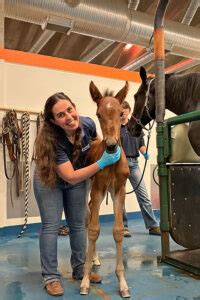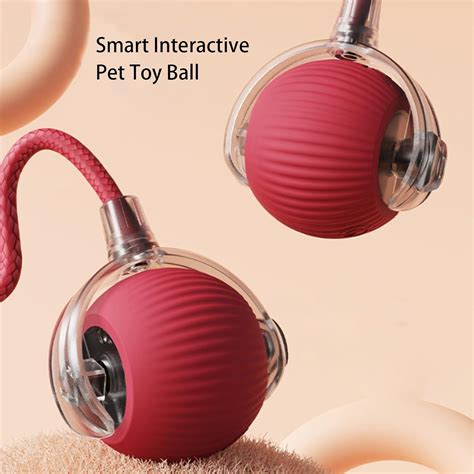
A heartwarming tale of maternal love and interspecies connection has emerged from a horse farm, where a nurse mare has formed a profound bond with an orphaned foal, offering not only sustenance but also affection and companionship.
The tender relationship, recently captured in a viral video, showcases the mare embracing the foal as her own, providing a touching example of the maternal instinct prevailing even in the face of biological disparity. The video has resonated with audiences worldwide, prompting an outpouring of emotion and highlighting the often-unseen emotional lives of animals.
According to the original Yahoo Lifestyle report, the nurse mare, whose identity and location were not explicitly disclosed, stepped in to care for the orphaned foal after its biological mother was unable to. Nurse mares, typically used in the horse breeding industry to provide milk and care for foals whose mothers cannot, sometimes form unexpectedly strong bonds with their adopted charges.
The viral video depicts the mare nuzzling, grooming, and protectively standing over the foal, demonstrating behaviors consistent with a biological mother. Experts note that such bonds, while not always guaranteed, highlight the complex social and emotional capabilities of horses.
“It’s a testament to the power of maternal instinct and the capacity of animals to form deep emotional connections,” said one equine veterinarian. “While nurse mares are often used for practical purposes, this video shows that the bond can transcend mere utility.”
The video has sparked conversations about the ethical considerations surrounding nurse mare practices, with some animal welfare advocates questioning the potential emotional toll on both the mares and their biological foals. However, it has also underscored the positive outcomes that can occur when these pairings are successful, providing a lifeline for orphaned or abandoned foals.
Nurse Mare Practices: A Complex Landscape
Nurse mares are an integral part of certain sectors within the horse breeding industry, particularly in cases where a mare dies during or shortly after foaling, is unable to produce sufficient milk, or rejects her foal. In these situations, a nurse mare is introduced to provide the necessary care and nutrition for the foal to survive and thrive. This practice is most common in the Thoroughbred and Standardbred racing industries, as well as in the breeding of other high-value horses.
Typically, nurse mares are bred specifically for this purpose. After giving birth, their own foals are often weaned early or, in some cases, re-homed or sold, so the mare can be used to raise another foal. The practice raises ethical concerns about the welfare of the nurse mare’s biological foal, as early weaning can have negative impacts on its development and behavior.
The use of nurse mares is not without controversy, with animal welfare organizations raising concerns about the potential stress and emotional distress caused to both the nurse mare and her original foal. The early separation can disrupt natural bonding processes and lead to behavioral problems in the weaned foal. Some organizations advocate for alternative methods of foal rearing, such as using foster mares who have lost their own foals or employing artificial rearing techniques.
However, proponents of nurse mare practices argue that it is often the most viable option for ensuring the survival of valuable foals. They maintain that responsible breeders take steps to minimize stress and ensure the welfare of all animals involved, providing appropriate care and attention to both the nurse mare and her biological foal.
The Viral Video: A Window into Animal Emotion
The viral video of the nurse mare and the orphaned foal has resonated with a wide audience because it offers a glimpse into the emotional lives of animals. The tender interactions between the mare and the foal – the gentle nuzzling, the protective stance, the obvious comfort they find in each other’s presence – speak to a deep-seated capacity for love and connection.
This kind of visual evidence can be powerful in shaping public perception of animals and their welfare. It challenges the notion that animals are simply driven by instinct and highlights their ability to form complex social bonds and experience a range of emotions.
The video has also sparked conversations about the importance of empathy and compassion in our interactions with animals. By recognizing their emotional needs and treating them with respect and care, we can create a more humane and ethical society.
Ethical Considerations and Animal Welfare
The situation brings to light ethical dilemmas inherent in animal husbandry. While nurse mares can be life-saving for orphaned foals, the practice of separating mares from their biological offspring raises serious questions about animal welfare. The potential for emotional distress in both the mare and her foal is a significant concern.
Animal welfare advocates argue that breeders have a responsibility to explore alternative methods of foal rearing, such as using surrogate mares who have lost their own foals or employing advanced artificial rearing techniques. They also call for greater transparency and regulation in the horse breeding industry to ensure that animal welfare is prioritized.
However, proponents of nurse mare practices argue that it is often the most practical and effective way to save the lives of valuable foals. They maintain that responsible breeders take steps to minimize stress and ensure the welfare of all animals involved, providing appropriate care and attention to both the nurse mare and her biological foal.
The ethical debate surrounding nurse mare practices highlights the ongoing tension between the economic interests of the horse breeding industry and the moral imperative to protect animal welfare. Finding a balance that allows for both the preservation of valuable bloodlines and the humane treatment of animals is a complex challenge that requires ongoing dialogue and innovation.
The Power of Maternal Instinct
The nurse mare’s heartwarming adoption of the orphaned foal underscores the powerful and innate nature of maternal instinct. This instinct, deeply rooted in biology and evolution, drives mothers to nurture, protect, and care for their offspring, ensuring their survival and well-being.
In the case of the nurse mare, her maternal instinct appears to have transcended species boundaries, leading her to embrace the orphaned foal as her own. This demonstrates the remarkable adaptability and flexibility of maternal behavior, highlighting the capacity of animals to form strong bonds even in unconventional circumstances.
The video serves as a reminder of the profound connection between mothers and their young, a connection that is essential for the survival of countless species and that evokes a sense of wonder and awe in those who witness it.
Alternative Foal Rearing Methods
While nurse mares have been a traditional solution for orphaned or rejected foals, advancements in veterinary medicine and animal husbandry have led to the development of alternative rearing methods that can minimize the ethical concerns associated with nurse mare practices.
One such method is the use of surrogate mares who have recently lost their own foals. These mares are often more receptive to adopting a new foal and may experience less emotional distress than nurse mares who have been separated from their biological offspring.
Another alternative is artificial rearing, which involves feeding the foal with specially formulated milk replacers and providing it with appropriate care and socialization in a controlled environment. This method requires significant resources and expertise but can be a viable option for foals who cannot be raised by a mare.
Researchers are also exploring the use of hormonal treatments to stimulate milk production in mares who have not recently foaled, potentially creating a pool of readily available nurse mares without the need for early weaning.
The Economic Impact of Horse Breeding
The horse breeding industry is a significant contributor to the economy, generating billions of dollars in revenue each year and supporting countless jobs in agriculture, veterinary medicine, and related fields. The industry encompasses a wide range of activities, including breeding, training, racing, showing, and recreational riding.
The Thoroughbred and Standardbred racing industries are particularly reliant on horse breeding, as the success of these sports depends on the availability of high-quality racehorses. Nurse mares play a crucial role in these industries by ensuring the survival and healthy development of valuable foals.
The economic importance of horse breeding can sometimes conflict with animal welfare concerns, as breeders may prioritize profit over the well-being of the animals in their care. Finding a balance between economic sustainability and ethical responsibility is essential for the long-term health and viability of the horse breeding industry.
The Role of Social Media in Raising Awareness
The viral video of the nurse mare and the orphaned foal is a prime example of the power of social media to raise awareness about animal welfare issues. The video’s widespread dissemination has sparked conversations about the ethical considerations surrounding nurse mare practices and has prompted viewers to reflect on their own relationships with animals.
Social media platforms provide a powerful tool for animal welfare organizations to educate the public about their work and to advocate for policy changes that protect animals. By sharing compelling stories and images, these organizations can capture the attention of a global audience and inspire action.
However, social media can also be a source of misinformation and biased reporting. It is important for viewers to critically evaluate the information they encounter online and to seek out credible sources before forming opinions.
The Future of Nurse Mare Practices
The future of nurse mare practices is likely to be shaped by ongoing ethical debates, technological advancements, and evolving consumer preferences. As awareness of animal welfare issues continues to grow, breeders may face increasing pressure to adopt more humane and sustainable methods of foal rearing.
Technological advancements, such as improved milk replacers and artificial insemination techniques, could reduce the reliance on nurse mares in the future. Additionally, research into alternative rearing methods, such as surrogate mares and hormonal treatments, could provide breeders with more options for ensuring the survival and well-being of foals.
Ultimately, the future of nurse mare practices will depend on the willingness of breeders, veterinarians, and policymakers to prioritize animal welfare and to embrace innovation in the horse breeding industry. A collaborative approach that considers both economic realities and ethical considerations is essential for creating a more humane and sustainable future for horses.
The Significance of Interspecies Bonds
The bond between the nurse mare and the orphaned foal highlights the remarkable capacity for interspecies connection. While different species may have different communication styles and social structures, they are often capable of forming deep and meaningful relationships.
Interspecies bonds can provide emotional support, companionship, and even protection. They challenge the notion that humans are the only species capable of complex social interactions and underscore the interconnectedness of all living things.
The study of interspecies bonds can provide valuable insights into the evolution of social behavior and the neural mechanisms that underlie attachment and empathy. It can also inspire us to treat animals with greater respect and compassion.
The Importance of Responsible Horse Ownership
The story of the nurse mare and the orphaned foal underscores the importance of responsible horse ownership. Horse owners have a responsibility to provide their animals with adequate food, water, shelter, and veterinary care, as well as to ensure their physical and emotional well-being.
Responsible horse ownership also includes making informed decisions about breeding practices and being aware of the ethical considerations involved. Breeders should prioritize the welfare of their animals and should explore alternative methods of foal rearing whenever possible.
By embracing responsible horse ownership, we can create a more humane and sustainable future for horses and ensure that they are treated with the respect and care they deserve.
Frequently Asked Questions (FAQ)
-
What is a nurse mare? A nurse mare is a mare used to provide milk and care for a foal that is not her own, typically because the foal’s biological mother is unable to or unavailable.
-
Why are nurse mares used? Nurse mares are used when a foal’s mother dies, cannot produce enough milk, rejects the foal, or has a medical condition that prevents her from caring for the foal. This is common practice, particularly in the Thoroughbred and Standardbred breeding industries.
-
What are the ethical concerns surrounding nurse mare practices? The primary ethical concern is the separation of the nurse mare from her own biological foal, which can cause emotional distress and potentially negative developmental impacts on the foal due to early weaning.
-
What alternatives exist to using nurse mares? Alternatives include using surrogate mares who have lost their own foals, artificial rearing with milk replacers, and hormonal treatments to induce lactation in non-pregnant mares.
-
How does this video highlight the emotional lives of animals? The video demonstrates the capacity of animals, specifically horses, to form deep emotional bonds and display maternal instincts, challenging the perception that they are solely driven by instinct. It shows nuzzling, grooming, and protective behavior exhibited by the nurse mare towards the orphaned foal.









